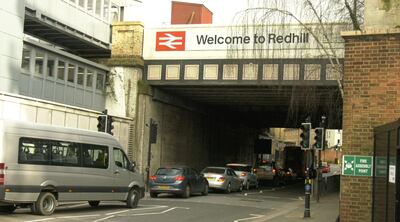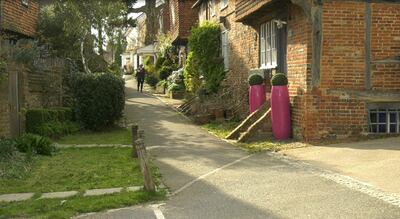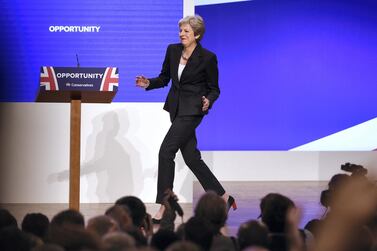The Brexit impasse has come to define British national life.
The country’s politicians are trapped in an seemingly endless dispute over the future of the nation’s relationship with the European Union.
On Wednesday evening, the House of Commons failed to find a majority on a series of options on the way forward, having already twice rejected the divorce deal agreed by prime minister Theresa May.
And it turns out the people are just as deadlocked as their representatives.
The National travelled to the constituencies of two MPs on either side of the divide to ask what would break the stalemate.
Crispin Blunt is one of a group of around sixty hard Brexiters from the ruling Conservative Party and a lifelong Eurosceptic.
Fellow Conservative Sam Gyimah voted for Remain in the 2016 vote. A former minister, he quit the government in 2018 and now supports a second referendum. Their constituencies in the English county of Surrey border each other.
Dagny Barnett, 50, is a childminding assistant out shopping in the town of Redhill, which lies in Mr Blunt’s Reigate constituency.
She voted Remain in 2016 because her husband is self-employed and the couple were unsure what impact any ensuing uncertainty would have on his business.
“It’s safer for us to stay where we were and know what we were doing,” she says.
Nothing in the past three years since the Brexit vote has made her change her mind and now, she supports holding a second referendum.
Mrs Barnett’s views are at odds with 25-year-old carpenter Harry Cousins, who is also out in Redhill walking his dog, Batman.
He didn’t vote in 2016 but supports leaving the EU because he wants to see tighter controls on immigration. He has become frustrated by politicians’ handling of the Brexit process.
“It’s making a mockery of it all,” Mr Cousins says. “They’re making it a lot more complicated than it has to be.”

Gertrude Ileke, 39, is a stay-at-home mother. Her reason for voting Remain was exactly the same as why Mr Cousins supports Leave, immigration from EU countries. She argues that EU workers are vital for Britain’s National Health Service.
“Most of the people that do these jobs are from other countries,” she says. “It makes Britain what it is, with the diversity.”
Mark Batchelor, 59, believes the referendum should not have been held in the first place. He didn’t vote because he didn’t feel informed enough about the issue.
“I can’t vote on something I know absolutely nothing about,” he tells The National in Redhill.
Just six kilometres away from Redhill is the village of Bletchingley, which falls in Mr Gyimah’s constituency of Surrey East.
Unfortunately, the residents there don’t have the answers either.

Book dealer Jo Risbridger didn’t vote in 2016 because she was living in Portugal. But at the time she favoured Remain.
But now she feels differently.
“I’ve done quite a lot of research about what’s going on in the world and I think the whole European Union is a massive great control mechanism,” she says.
Retired insurance broker David Arthur voted leave but nothing he’s seen since the referendum has made him change his mind.
“The only thing I’ve learnt over the past two years is we’ve got a bunch of idiots as politicians,” he says.
But another constituent, who wished to remain anonymous, said she would vote differently if given a second chance.
“I voted leave before but now I think I’d rather stay,” she says.
Leave voter Janine King, 52, is staunchly opposed to a second referendum.
“The majority of the country don’t want that,” she says.
Does she believe she'll get the Brexit she voted for?
“Don’t know,” says Ms King. “That’s all I can say.”
It seems there is only one thing that unites the residents of both constituencies with their representatives in parliament. None of them have a clue what will happen.





